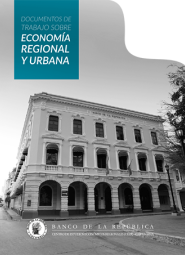Do Actions Speak Louder than Words? A Foreign Exchange Intervention Analysis
La serie Borradores de Economía es una publicación de la Subgerencia de Estudios Económicos del Banco de la República. Los trabajos son de carácter provisional, las opiniones y posibles errores son responsabilidad exclusiva del autor y sus contenidos no comprometen al Banco de la República ni a su Junta Directiva.
The series Borradores de Economía (Working Papers on Economics) contributes to the dissemination and promotion of the work by researchers from the institution. On multiple occasions, these works have been the result of collaborative work with individuals from other national or international institutions. This series is indexed at Research Papers in Economics (RePEc). The opinions contained in this document are the sole responsibility of the author and do not commit Banco de la República or its Board of Directors.
Abstract
We revisit an old question but with a new identification strategy, namely the difference in exchange rate effects between announced (“vocal”) and secret (“dirty”) foreign exchange intervention. Using a Regression Discontinuity Design, we exploit a rule-based intervention mechanism enacted by the Central Bank of Colombia that, under observable and deterministic conditions, triggered either the issuance of FX options or the ability to exercise them. We take the former (issuance) as central bank announcements under a sharp setting, since the rule and information that triggered the issuance of options was public, and we take the latter (exercise) as secret trades under a fuzzy setting, since traders could have chosen (but were not required) to exercise their options in the following days after issuance. Our results indicate that, unconditionally, both announcements and secret trades carry similar effects. However, the effects of announcements are considerably amplified conditional on: (i) higher central bank credibility, (ii) less frequent announcements, and (iii) episodes of higher FX volatility.




















































